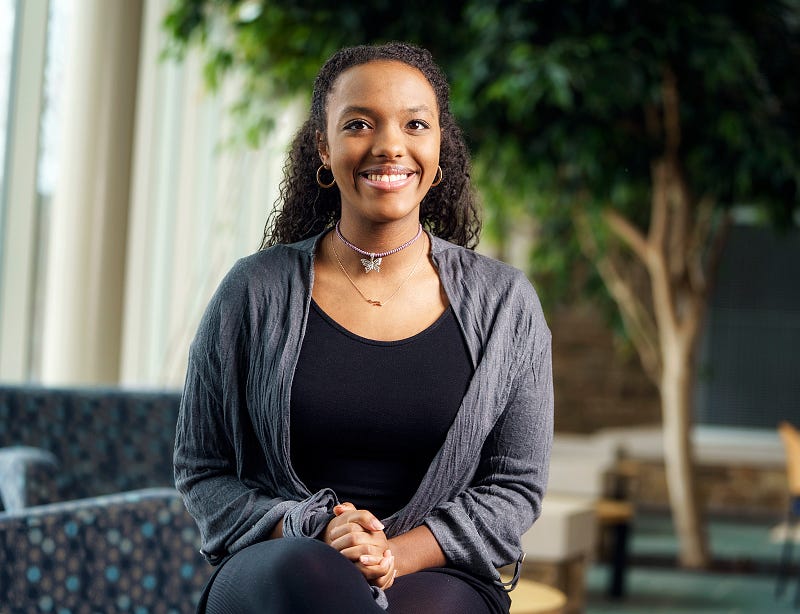
This past September, the Hamilton College Advisory Council kicked off the first of a series of listening sessions designed to give different identity groups in our community a space to use their voices and reflect on their experiences at Hamilton. In these sessions, which are held over Zoom and capped at 15 people, conversations are facilitated by social justice educators Marta Esquilin and Makeeba Browne. While each session centers around a specific identity group all groups focus on intersectionality and explore the diverse nature of experience, so participants are encouraged to choose any listening session that they feel fits them best.
Amari Leigh ’21, the current co-chair of the Advisory Council, spoke about the thought process behind starting the sessions, their importance, and the way in which they are structured. “The Advisory Council has met weekly since the summer, and from the beginning, listening sessions were identified as something that could be really useful for community members, especially during these difficult and tense times,” Leigh said. “I don’t think the school has always given enough support to Black students like myself when it comes to grappling with the effects of institutionalized racism not only at Hamilton, but in our country at large.”
Addressing this element of support is a key aspect of the listening sessions. Leigh noted that recent events and social movements have contributed to students really hurting, and that these sessions are “a chance to help reflect on changes that could be made, but also implement healing methods for how to deal with the big societal issues that have affected students’ time here at Hamilton.”
Thus far, Leigh is optimistic in the feedback from students about the sessions and is active in incorporating and addressing those comments, particularly concerning the format of the sessions. She described the sessions as “a first step in a long process, but so far the feedback has been good. The reservation for 10–15 people is intentional and a part of the structure, so that everyone can be actively engaged and really participate; that’s also why we want people to register and it’s not just an open Zoom meeting.”
In moving forward, Leigh discussed the overall goals and purposes for both the listening sessions and the Advisory Council at large. She stated, “Depending on feedback and community interest, there is a possibility to add more sessions in the future; I’ve heard from students that it seems like sometimes the school’s efforts are one-and-done, but they don’t actually work to fix the problem. We thought about this during the planning process. We want to make this conversation ongoing and provide support continuously. I think everyone on the council fully recognizes that we can’t just solve these issues after one hour-long session.”
Leigh noted that there has been controversy and criticism surrounding the Advisory Council and was very upfront in addressing this. She stated, “I push back against the idea that the Advisory Council is just President Wippman. As a student on this campus, I take my role on this council very seriously. It is of paramount importance to me that any student with an idea or concern is able to share that with the people that need to hear it most. I hope to help act as that bridge for my fellow students. We met with Student Assembly and people from different areas of the campus community. I really want this to feel like a community project. The Advisory Council is a working group, not a lifetime appointment. Ultimately, I want Hamilton to be better — I need Hamilton to do better for students that look like me who have had similar experiences.”
However, in order to make real progress, Leigh emphasized the importance of getting greater participation and the involvement of the entire Hamilton community, not just from certain identity groups. “We’re living in a moment now where everyone has to be involved and everyone has to be engaged, otherwise change will never happen. For too long, we’ve placed a really heavy burden to solve these issues on some of the most marginalized members of our community. It is time for all members of our community to now share the weight and step up if they’re really allies. I encourage anyone who has a question, thought, comment, or critique to reach out to me personally — that’s what I am here for. Use your voice and provide feedback on things you want to see changed at Hamilton, even small things. We do respond and we talk about each suggestion that we get.” Notes from each Advisory Council meeting are published on
the Council’s webpage
.
Community members are encouraged to reach out to members of the Advisory Council and use the “Be Heard” link that can be found
here
.
Upcoming listening sessions, happening on October 12th, 13th, and 14th, will focus on BIPOC Alumni, Black Students, Latina/o/x Students, and Asian and Pacific Islander Students. All are welcome and encouraged to participate, and you can register
here
.
























